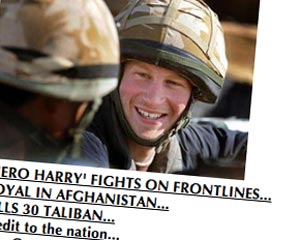As the catastrophe and media blackout in Burma continues, coverage of the Wenchuan quake in China has taken centre stage.
While pictures and information on Burma are scarce, the international media has been given a free hand on the ground in Sichuan province, perhaps as natural disasters offer an unrivalled opportunity for the government to show itself in action.
Western media has produced some moving accounts of the tragedy as well as some more critical pieces on how the government has handled the rescue effort.
In the Guardian, Naomi Klein reports disgruntled parents lamenting the collapse of their children’s schools, and Tania Branigan quotes claims of corruption and misuse of funds.
Unsurprisingly, coverage here has primarily been on the rescue effort, the suffering and on Wen Jiabao and Hu Jintao’s visits to quake-hit areas.
Domestic media has focused on the Party’s action plan and prominently featured press briefings detailing the government’s response, as well as making full use of photo opportunities for Party leaders.
Wen seems to have become the human face of the Party’s disaster relief efforts. He is visible in the same way that he was during the winter snow disaster; where he personally visited the gridlocked Guangzhou train station to address stranded spring festival travellers.
Thursday’s China Daily featured a picture of him holding two forlorn looking girls by the shoulder and quoted him as saying: “I am grandpa Wen Jiabao. You must hold on, child! You will be saved.”
China Daily has focused on the human cost and survivors’ tales, running capped-up front-page headlines “MAGICAL MOMENTS,” and RESCURERS RACE AGAINST TIME”.
Like the snow disaster, a lot of prominence is being given to donors’ generosity and volunteer rescue efforts (including those of foreigners on the ground) as China again attempts to present a united front.
However, the New York Times carries an excellent article asking why the government has accepted aid from Japan, Taiwan and Singapore but rejected offers from others.
Despite the huge mobilization of the army, the troops lack the necessary heavy lifting and drilling equipment to dig for survivors.
Such shortcomings seem to be going unnoticed amongst the scramble to present a front of national unity, and few here are asking why professionals from the West are being told to stay away.
According to China Media Project (CMP), critical coverage of the quake has apparently been banned by an edict discouraged by one of numerous directives intended to stop the spread of malicious rumours stories that may show the authorities in a bad light.
However stories like this, on the poor structural integrity of the schools that have collapsed, seem to have passed unnoticed.
CMP also runs a translation of another editorial by Southern Metropolis Daily editor Chang Ping. Chang highlights the dubious nature of the law on spreading false rumours in the light of the public’s overwhelming demand for information regarding the quake.
The law has came to the fore after a number of false rumours also surfaced in chatrooms and forums alleging that the authorities had somehow been warned that the quake was coming but suppressed the information, it would have perhaps been easier to dispel some of these myths quickly if the ever present spector of the authroities didn’t loom large and automatically make people suspicious of any news that suggests underhand activity on their part.
It will be interesting to see if the commercial media will begin receiving pressure to avoid critical reporting in the coming days when fewer survivors turn up and locals face the grim task of moving the dead and contemplating rebuilding their towns and homes and lives.
That will be a time for much reflection – and a lot of reflection may lead to some touchy questions.
